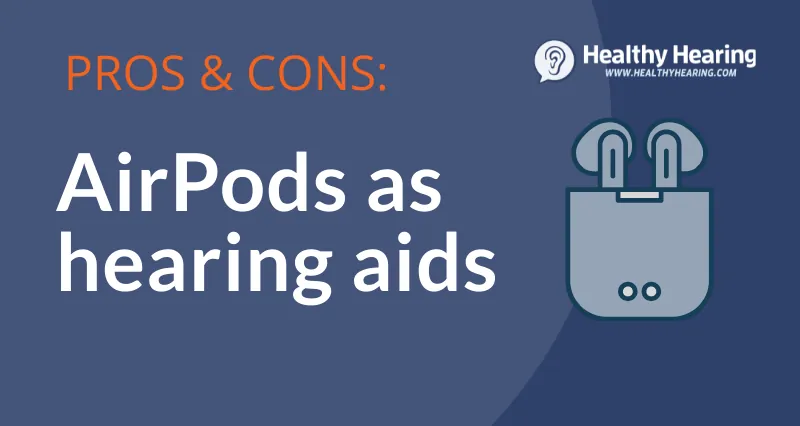
The Apple AirPods Pro 2: A Game-Changer for Mild to Moderate Hearing Loss?
2024-11-25
Author: John Tan
Apple has stepped into a new realm with its AirPods Pro 2, now equipped with innovative hearing-related software that serves as over-the-counter hearing aids for individuals facing mild to moderate hearing loss. These features, which include a hearing test, were officially sanctioned by the U.S. Food and Drug Administration in September 2024, accessible through an update to iOS 18.
But are these popular earbuds a suitable replacement for traditional hearing aids? Let’s break down the advantages and disadvantages to help you decide.
Unveiling AirPods Pro 2’s Hearing Features
The AirPods Pro 2 are Bluetooth-enabled earbuds compatible with various Apple devices, like the iPhone and iPad. Each earbud includes a microphone and speaker, facilitating hands-free calls and streaming audio. With newly added hearing aid functionality, they can amplify ambient sounds akin to conventional hearing aids.
Catherine Palmer, PhD, an audiology expert, notes that smartphones have long served as beneficial tools for individuals experiencing hearing challenges. With features now integrated directly into the AirPods, users can enjoy improved sound quality complemented by specific functionalities aimed at their needs.
Key Hearing Features:
1. Self-Administered Hearing Tests: AirPods allow users to take an accessible hearing test using compatible Apple devices. While these tests do not replace professional evaluations, they provide a useful preliminary assessment of one's hearing status.
2. Hearing Aid Functionality: Users can program their AirPods with audiograms obtained from an audiologist or the results from the Apple hearing test, effectively transforming the earbuds into customized hearing aids.
3. Hearing Protection: These earbuds also offer protection against ambient noise levels, thereby safeguarding your hearing health.
Pros of AirPods Pro 2 as Hearing Aids
- Widely Accessible: Being a familiar technology, AirPods are less intimidating compared to traditional hearing aids. They come with user-friendly features, including a fit test.
- Affordably Priced: At $249, the AirPods Pro 2 are significantly less expensive than prescription hearing aids, making them an attractive option for budget-conscious consumers.
- Convenient Charging: The earbuds come with a portable charging case that can recharge them with a quick five-minute plug for roughly an hour of use, making them easy to utilize on the go.
- User-Friendly: Apple fans who are tech-savvy will find navigating the hearing features straightforward, and caregivers can assist those who might struggle with technology.
- Bluetooth Range: With a wireless connection range of about 30 feet, users can comfortably engage in conversations without being near their devices, similar to most hearing aids.
- A Gateway to Hearing Devices: For many, AirPods Pro 2 represent an entry point into hearing assistive technology and self-care, potentially encouraging them to seek professional help later on.
Cons of Using AirPods Pro 2 as Hearing Aids
- Limited by Hearing Conditions: These earbuds are not designed to diagnose or treat medically correctable conditions, like earwax buildup, and are unsuitable for individuals with severe hearing loss.
- Not Customizable for All Ear Shapes: Individuals with unusual ear canal shapes may find the AirPods uncomfortable or difficult to wear properly.
- Visibility Concerns: Unlike discreet hearing aids, AirPods stand out, which may lead to misunderstandings about their use in public settings.
- Occlusion Effects: Users may experience unwanted echoes or muffled sounds, as the earbuds etch out low frequencies that normally enter the ear.
- Battery Longevity Issues: The battery life is relatively short, offering 6 hours of listening time—far less than many traditional hearing aids which can last multiple days on a single charge.
- Incompatibility with Non-Apple Devices: You need to be within the Apple ecosystem to access these hearing functionalities, making them an impractical choice for Android users.
Conclusion: Are AirPods Pro 2 Right for You?
“If you already possess an iPhone and are facing mild to moderate hearing loss, the AirPods Pro 2 could be an unexpected yet effective solution,” Dr. Palmer states. While they may not fully replace traditional hearing aids, they provide a useful amplification option.
Ultimately, experimenting with these over-the-counter devices may enlighten users about their needs, leading them toward professional hearing aid solutions. If you find yourself intrigued by the idea of improving your hearing in casual settings, these innovative earbuds might be worth considering.



 Brasil (PT)
Brasil (PT)
 Canada (EN)
Canada (EN)
 Chile (ES)
Chile (ES)
 España (ES)
España (ES)
 France (FR)
France (FR)
 Hong Kong (EN)
Hong Kong (EN)
 Italia (IT)
Italia (IT)
 日本 (JA)
日本 (JA)
 Magyarország (HU)
Magyarország (HU)
 Norge (NO)
Norge (NO)
 Polska (PL)
Polska (PL)
 Schweiz (DE)
Schweiz (DE)
 Singapore (EN)
Singapore (EN)
 Sverige (SV)
Sverige (SV)
 Suomi (FI)
Suomi (FI)
 Türkiye (TR)
Türkiye (TR)